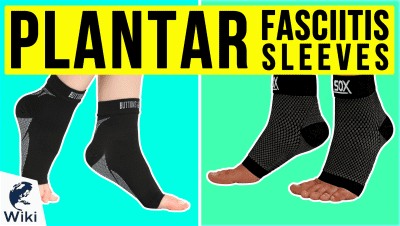5 Helpful Resources For Those Looking To Get Sober
Substance abuse and addiction are all-too common issues that affect millions of people, causing harmful physical, mental, and economic consequences that can be difficult to curb. Fortunately, numerous individuals and groups are dedicated to helping people on their roads to recovery. The resources listed here, ranging from medical institutes to alcohol-free bars, are worth considering for anyone wanting to achieve sobriety. This video was made with Ezvid Wikimaker.
5 Resources For Understanding & Ending Substance Use
| Name | About |
|---|---|
| The Sobriety Collective | Community of creatives living a substance-free life, offering a recovery hub where readers can shop, read profiles of sober artists, and browse through hundreds of resources |
| The Coleman Institute | Develops treatments that are safe, comfortable, and affordable for patients, enabling them to take the first step toward recovery and a drug-free life |
| Redemption Bar | A series of London restaurants serving up vegan, sugar-free, and wheat-free food with an alcohol-free bar |
| Chris Finan | Author of Drunks, a social history of alcoholism in the United States from the seventeenth century to the present day |
| Center For Network Therapy | New Jersey-based medical center providing acute levels of drug and alcohol detox in an outpatient setting |
The Stigma of Addiction
US Addiction Statistics
- More than 46 people each day die from prescription opioid overdoses
- Roughly 75% of heroin users misused prescription opioids before trying heroin
- More than 53% of prescription opioid users obtained their drugs from friends or relatives
- In 2017, 19.7 million American adults (aged 12 and older) battled a substance use disorder
- Drug overdose deaths have more than tripled since 1990
- Every year, 3.3 million fatalities result from the consumption of alcohol
- 23.1% of the U.S. population aged 12 or older participated in binge drinking during the past 30 days
- While it's estimated that 1 in 7 adults faces addiction, only 10% of those addicted receive treatment
- An American dies every 19 minutes from opioid or heroin overdose
Dr. Coleman Explains Accelerated Opioid Detox
In Depth
Overcoming addiction to drugs or alcohol is a lifelong process for many, often requiring deep changes in an individual's lifestyle and self-image. Dedicated support, whether from medical professionals or from others undergoing similar struggles, can make a critical difference. The following people and organizations, outlined in no particular order, offer assistance and insights for anyone seeking recovery.
Entry #1 on our list is The Sobriety Collective, a community of creative professionals supporting each other in leading a life free from intoxication. The organization shares information on resources for help with substance abuse, and many of its members have created books or other tools to aid in recovery. Examples include Dawn Nickel, co-founder of She Recovers, and Annie Grace, author of This Naked Mind.
The Sobriety Collective's blog offers insights on the process of overcoming addiction, and reflections on the ways that artists can draw strength from the creative process to fuel their recovery. Many of its articles discuss ways to find fun without alcohol, such as mocktails, music, and outdoor adventure. The Collective's members share personal stories of what substance abuse cost them, and what it took to get well.
The Collective's members share personal stories of what substance abuse cost them, and what it took to get well.
For our #2 entry we have The Coleman Institute, which provides rapid detoxification treatment for addictions of all kinds. Its founder, Dr. Peter Coleman, has drawn from his personal experience with substance abuse to develop his signature method of accelerated detox; this process uses medication to ease the adverse effects of withdrawal so that patients can be ready to leave the facility in a matter of days.
The Coleman Institute's outpatient centers provide comfortable settings for patients to clear their systems of addictive drugs, with the support of trained medical professionals. The organization offers explanatory guides to its programs, as well as numerous other informational resources intended to dispel myths about addiction or answer questions about recovery strategies. The Institute also shares testimonials from former addicts, and advice on maintaining sobriety after detox.
Next in the overview is #3, Redemption Bar, a chain of health-conscious and alcohol-free hangouts located in London. Redemption serves creative mocktails, like hot toddies with hibiscus tea or cranberry juice cosmopolitans, as well as smoothies and mochas filled with natural ingredients. Its food menu features vegan versions of pub classics, desserts free of refined sugar, and many other innovative plant-based meals.
Its food menu features vegan versions of pub classics, desserts free of refined sugar, and many other innovative plant-based meals.
Redemption Bar hosts events focused on healthy eating and drinking, such as workshops on alcohol-free mixology or tofu preparation. Its Redemption Retreat combines yoga, meditation, and cooking instruction in a week-long course on wellness in daily life. The company also posts articles about exploring sobriety, and recipes for fun drinks that don't require liquor.
#4 on the list is Christopher M. Finan, an author and free speech advocate who writes about history, censorship, and addiction. Finan's book Drunks chronicles America's long struggle with alcohol abuse; it introduces readers to notable figures like Benjamin Rush, one of the earliest advocates for treating addiction as a disease, and Handsome Lake, a Native American reformer working to promote independence from liquor among his people.
Finan has written on the need to treat addiction as a public health crisis, and on the complex relationship between Alcoholics Anonymous and religion. Finan's writing has been profiled in The New York Times, and he discusses temperance movements and his own struggle for sobriety in interviews with outlets like Vice and The Fix. He also serves as executive director of the National Coalition Against Censorship.
Finan has written on the need to treat addiction as a public health crisis, and on the complex relationship between Alcoholics Anonymous and religion.
We'll finish with #5, the Center For Network Therapy, a New Jersey-based treatment program for addiction that uses outpatient detoxification to integrate recovery with daily life. The method assists patients gradually through the withdrawal stage, under medical supervision, while working on techniques to prevent relapses. CNT serves as an alternative to traditional rehab, allowing patients to remain in contact with their families and other support systems.
CNT specializes in treating professionals with high-stress jobs, such as nurses and police officers, enabling them to minimize disruption of work schedules while in recovery. Its staff are also experienced at addressing the traumatic experiences frequently involved in addiction among women. The Center's blog discusses subjects like spotting signs of substance abuse in teenagers, or selecting rehab facilities.















